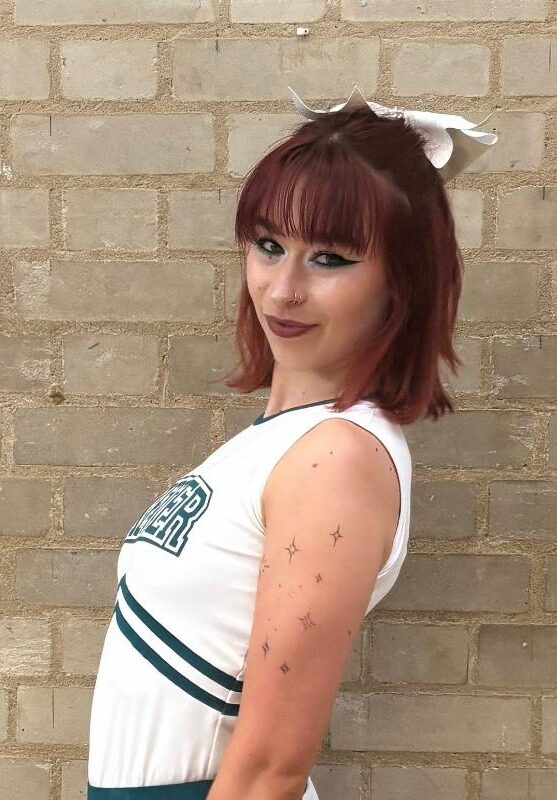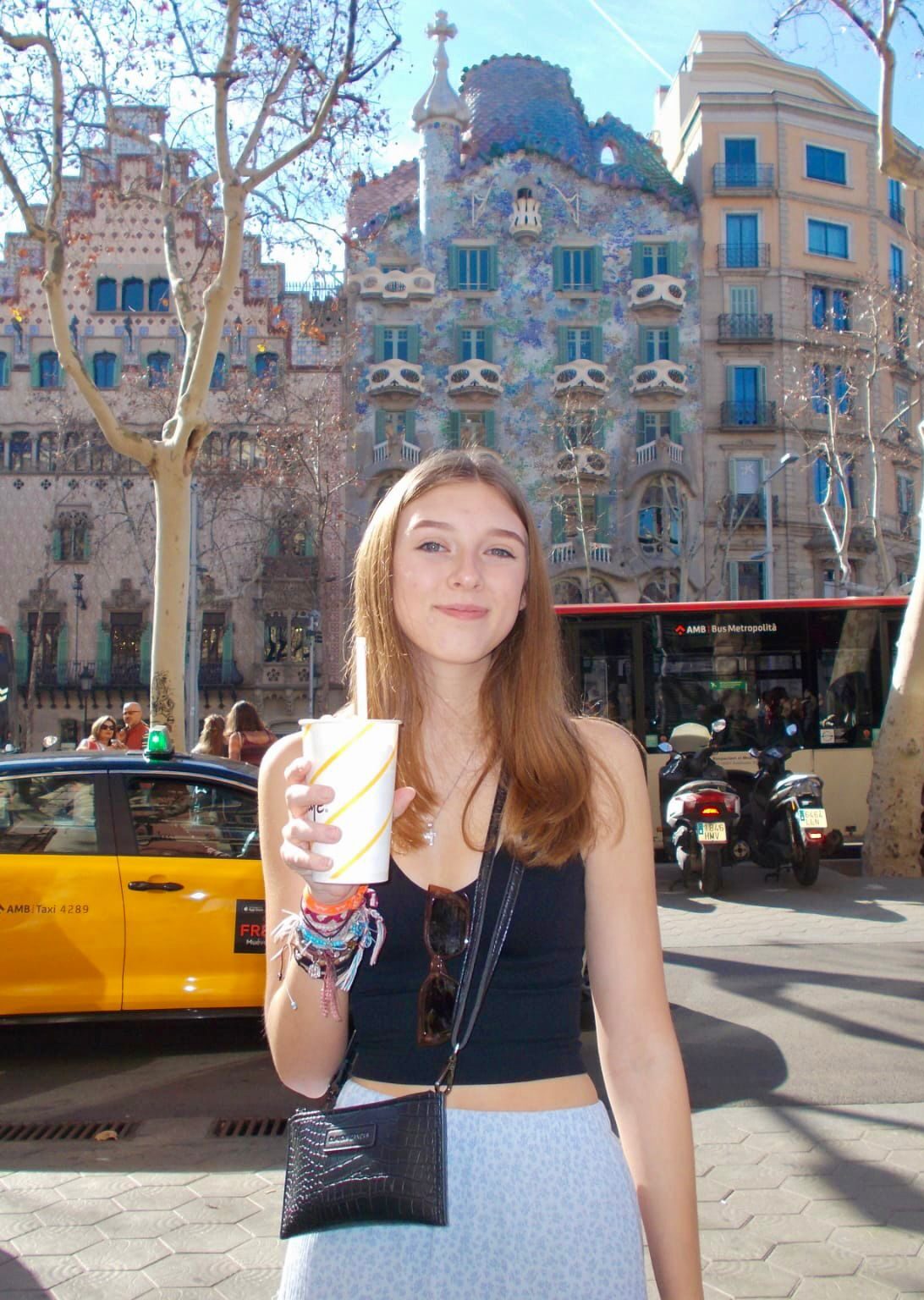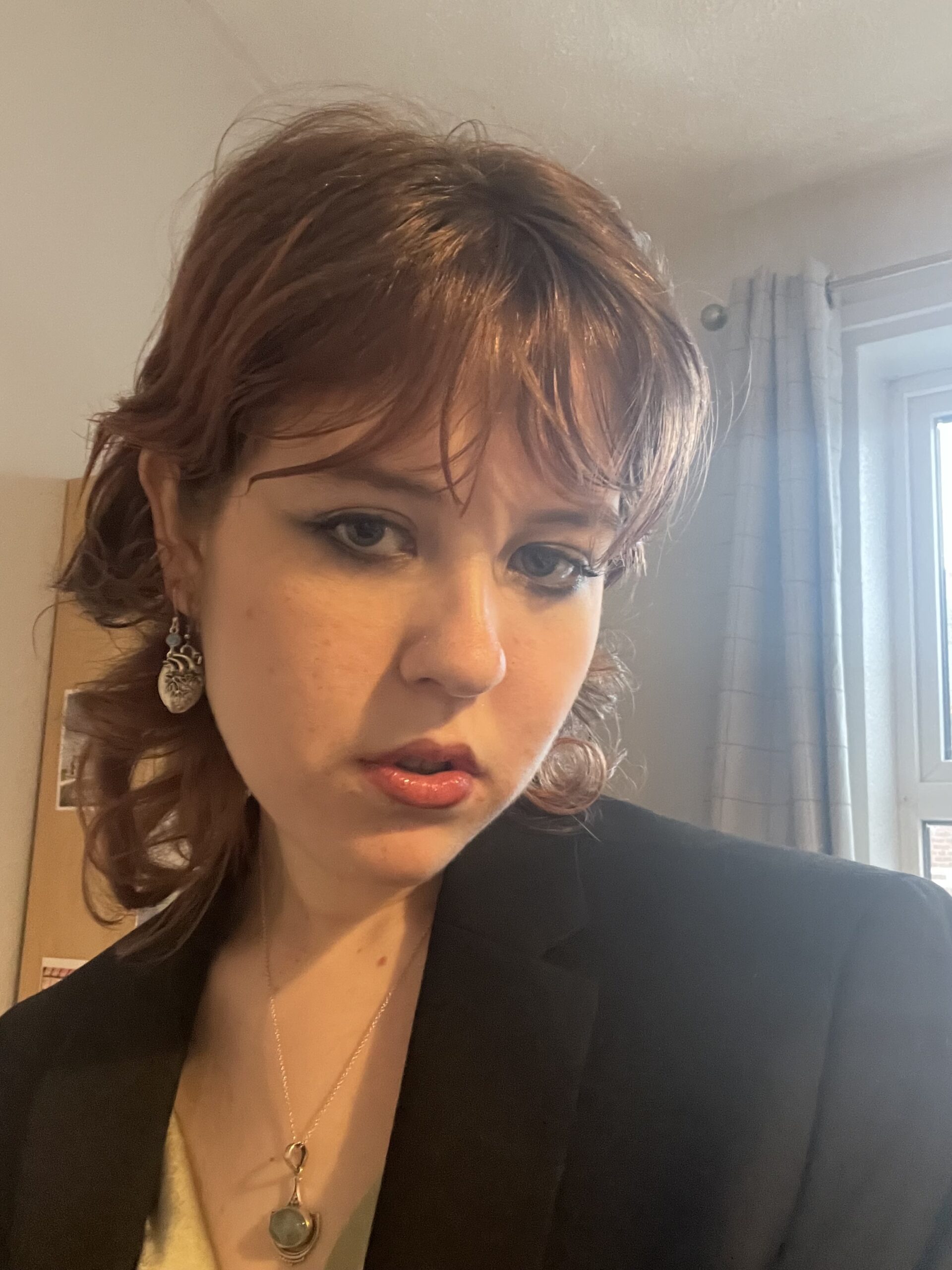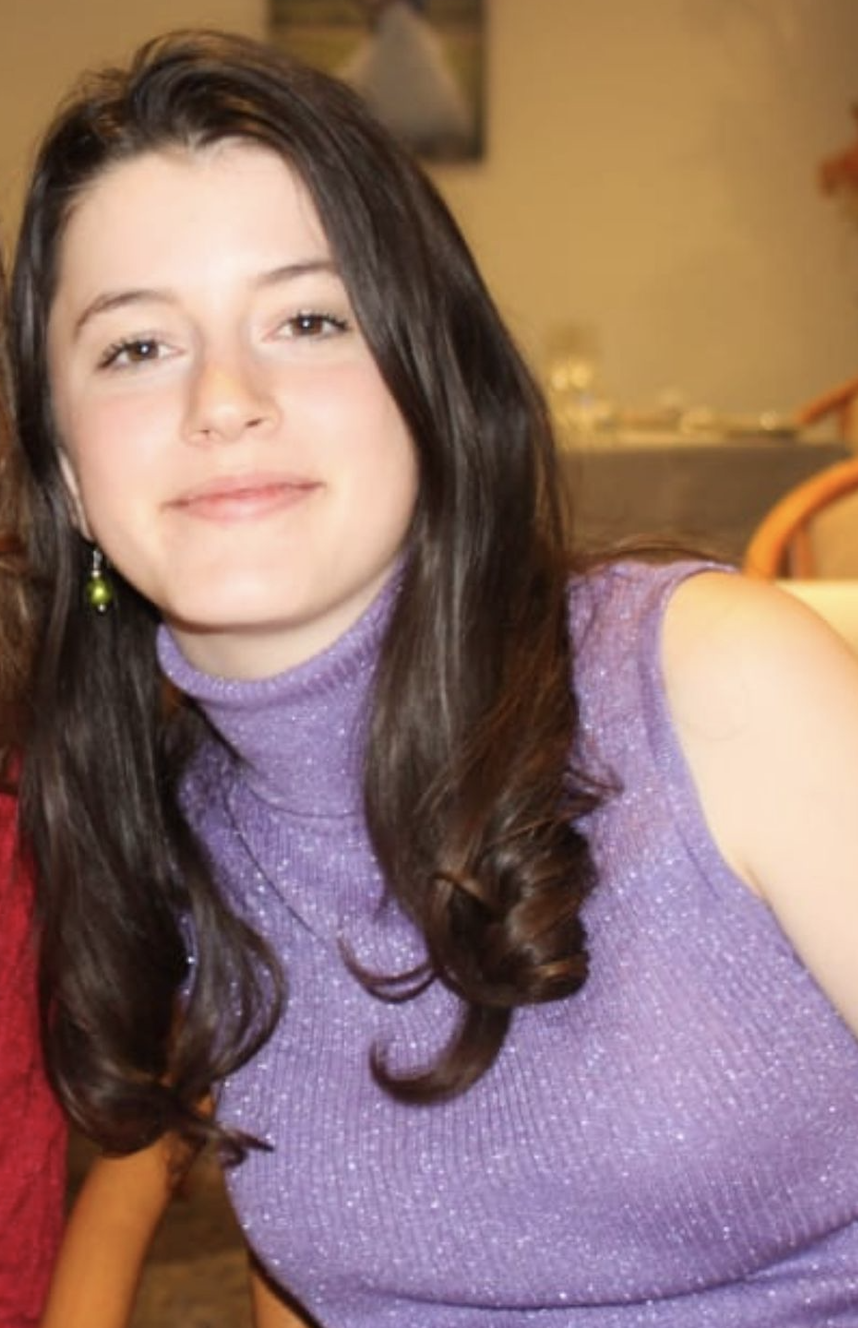The Witness Awards 2025 Winners
Welcome to our official Witness Awards showcase—where we recognise and celebrate the outstanding writers, editors, and contributors who have shaped our publication this year. rom fearless opinion pieces to powerful interviews and editorial leadership behind the scenes, these awards recognise the writers, editors, and collaborators whose dedication, insight, and originality have left a lasting impact on our publication and our readership.
Scroll down to meet this year’s winners and explore the work that earned them their well-deserved recognition.
Best Article
Awarded for excellence in journalism, storytelling and depth.
Winner: Veronika Parfjonova
Piece: “Opinion: Selling Sex is Feminist”… And Other Lies Told on OnlyFans”
Few articles this year have generated as much internal debate and editorial awe as Veronika’s blistering takedown of the OnlyFans industrial complex. “Selling Sex is Feminist”… And Other Lies Told on OnlyFans is not just a powerful piece of journalism—it’s a fierce moral reckoning. Refusing to look away from the violence that underpins commodified sexuality, Veronika tears through the PR gloss of “empowerment” to expose a system built on exploitation, self-harm, and industrial-scale misogyny.
This piece stands out not only for its unflinching content, but for the control with which it’s delivered. Veronika wields language like a scalpel—precise, sharp, and devastating. Drawing on investigative reporting, cultural critique, and radical feminist theory, she makes a clear and urgent case: that what is sold as choice is often structural coercion, and that what is branded as feminism is, in fact, capitalism at its most brutal. Veronika’s work demands we confront what we’ve normalised, and what we’ve chosen to ignore.
Brave, methodically argued, and intellectually uncompromising, this is the piece that defined our editorial year. A truly deserving winner of Best Article.

Best Longform Feature
Awarded for the best deep, clear, political analysis in narrative form.
Winner: Emily Hone
Piece: “Opinion: The Myth of the ‘Liberated Sex Worker’ – Feminism or Patriarchy Rebranded?”
Emily’s winning piece is a masterclass in longform political commentary—bold in scope, meticulous in construction, and unapologetically clear in its intellectual purpose. “The Myth of the ‘Liberated Sex Worker’ – Feminism or Patriarchy Rebranded?” cuts through euphemism and surface-level empowerment narratives to examine the deeper ideological tensions underpinning sex work discourse today.
What made this feature stand out was its sustained critical pressure. Emily doesn’t just pose difficult questions—she stays with them, guiding the reader through complex feminist terrain with clarity, structure, and unrelenting focus.
Measured, deeply engaged, and methodologically sharp, this is longform writing at its most effective. And that’s what made it the standout winner of Best Longform Feature.

Best Shortform Article
Awarded for the best sharp, punchy, and impactful article.
Winner: Magda Kanecka
Piece: “It’s Time to Tackle the Cause, Not Just the Symptoms”: An Interview with Academics Against Assault Exeter”
In a format that demands clarity, urgency, and restraint, Magda Kanecka delivered a piece that was nothing short of commanding. “It’s Time to Tackle the Cause, Not Just the Symptoms” captured the voice of a critical grassroots movement while holding space for institutional critique, all within the tight constraints of shortform journalism.
What set this piece apart was its precision. Every line carried weight. The questions were direct, the framing sharp, and the stakes made instantly clear. In under 1,000 words, Magda managed to illuminate the structural failures surrounding sexual violence on campus, while centring the voices working to challenge them.
This wasn’t just a good short article; it was one that left a lasting mark. Focused, timely, and unafraid to confront power, it stood out as the most impactful and editorially refined shortform piece of the year.

Best Editorial Submission
Awarded for the best piece submitted to The Editorial Tab.
Winner: Erin Morgan
Piece: “We Were the People Who Were Not in the Papers” – The Dystopian Reality of Silencing the Voices that Matter Most
Erin’s editorial piece tackles one of the most urgent threats to education and public discourse: the rising wave of censorship, book bans, and ideological gatekeeping—particularly in the United States, but increasingly echoed in the UK. Drawing on legislative trends, and the implications of editorial intervention, the piece is both timely and methodologically precise.
Erin deftly navigates the complexities of censorship—distinguishing between silencing and safeguarding—without collapsing into polemic. The editorial addresses not only the political machinery behind book bans, but also the quieter, more insidious forces of self-censorship and public pressure that risk marginalising the very voices literature exists to amplify.
A deserving winner of Best Editorial Submission—and a vital contribution to one of the defining debates of our time.

Best Opinion Piece
Awarded for the most persuasive and well-argued op-ed.
Winner: Magda Kanecka
Piece: “Opinion: What the Rise of the Far-Right in Europe Will Mean for UK Citizens”
Magda’s winning op-ed is a vivid, clear-eyed response to one of the most pressing political shifts of our time: the rapid resurgence of far-right parties across Europe. What sets this piece apart is its refusal to observe from a distance. Instead, Magda draws a direct line between electoral outcomes abroad and the lived realities awaiting citizens in the UK—especially those from marginalised communities.
Magda unpacks recent electoral trends with precision, weaving them into a wider critique of global influence, political complacency, and the increasingly blurred line between tech magnates and state power.
Personal without being anecdotal, politically urgent without being alarmist, Magda’s voice brings clarity to chaos. Her ability to balance analysis with moral weight makes this a standout example of opinion writing that matters. A bold, articulate, and highly deserving winner of Best Opinion Piece.

Outstanding Editorial Contribution
Awarded for behind-the-scenes brilliance.
Winner: Freya Holland
Editorial work often takes place in the background—unseen, unsung, and yet absolutely essential. This year, no one embodied that quiet excellence more than Freya. Her contribution to The Witness has been defined by consistency, care, and a level of diligence that set the editorial standard for the rest of the team.
Whether it was meticulous sub-editing, organisational leadership, or simply being the steady presence every writer could rely on, Freya’s role was foundational to the success of the publication. A true pillar of the publication, and the very definition of Outstanding Editorial Contribution.

Breakthrough Writer of the Year
Awarded to a new writer who’s absolutely flourished.
Winner: Gemma Gradwell
Gemma emerged this year as one of The Witness’s most exciting new voices—thoughtful, original, and unafraid to tackle difficult ideas with clarity and confidence. From her very first piece, it was clear she brought something distinctive to the publication: a keen analytical mind, a sharp eye for narrative, and a writing style that combined elegance with impact.
What makes Gemma’s rise so impressive is not just her talent, but her growth. With each article, her voice became stronger, more assured, and more nuanced. She demonstrated a rare ability to balance intellectual rigour with accessibility—never talking down to the reader, but always bringing them with her. This award recognises not only the quality of her work, but the promise it holds. A writer with real range, curiosity, and courage, Gemma has flourished in every sense—and this is only the beginning.
A thoroughly deserving recipient of Breakthrough Writer of the Year Award.

Best New Columnist
Awarded to the best new regular voice whose contributions have added something fresh, thoughtful, and distinctive to our editorial landscape.
Winner: Amelie Singleton
Amelie has quickly become one of The Witness’s most compelling regular voices—bringing a confident, incisive perspective to every column she’s written. With a style that’s both conversational and critically sharp, Amelie has carved out a space in the publication that feels entirely her own.
One of Amelie’s greatest strengths lies in her ability to write explainers that are genuinely explanatory. Her columns are characterised by a rare combination of clarity, originality, and thoughtfulness. She knows how to take complex issues and distil them into prose that is not only readable, but resonant—never simplifying, but always illuminating. Each piece reflects a strong editorial instinct and a distinctive voice that invites the reader in without ever compromising on argument or insight.
Amelie’s work has already become a highlight of the publication’s editorial rhythm. As a columnist, she doesn’t just comment, she shapes conversation. A hugely deserving winner of Best New Columnist.

Outstanding Committee Contribution
Awarded for exceptional dedication and organisational skills in supporting the work of the publication behind the scenes.
Winner: Veronika Parfjonova
Veronika has been a driving force behind the smooth, strategic operation of The Witness this year. Her behind-the-scenes contributions have been nothing short of essential—balancing big-picture thinking with a meticulous eye for detail and an unwavering sense of responsibility.
Veronika has approached every challenge with calm efficiency and quiet leadership. She doesn’t seek the spotlight—but her impact is everywhere: in the cohesion of our editorial calendar, in the strength of our team culture, and in the success of the publication this year as a whole.
This award recognises not just hard work, but the kind of dedication that elevates everyone around her. Organised, thoughtful, and endlessly dependable, Veronika sets the gold standard for what it means to support a publication from within.
A truly deserving recipient of the Outstanding Committee Contribution Award.

Best Editorial Collaboration
Awarded for the strongest co-written article.
Winners: Veronika Parfjonova & Emily Hone
Piece: Freedom Society at Exeter: Exploring Free Speech and Political Discourse with Jon McBride
Great editorial collaborations do more than combine two voices—they sharpen each one, create structure from complexity, and produce work that neither writer could have achieved alone. Co-authored by Veronika and Emily, this article stood out not only for its subject matter, but for its cohesion, intellectual depth, and balanced tone—hallmarks of a truly effective editorial partnership.
From the outset, the piece tackles a complex and controversial topic: the Freedom Society’s place within campus politics. Navigating such material could easily have become adversarial, or worse, evasive. But what Veronika and Emily achieved instead was a structured, fair-minded interrogation—one that contextualised McBride’s views while maintaining a critical eye. The clarity of the article’s progression, the restraint in tone, and the care in phrasing all speak to a collaboration built on mutual editorial trust and high journalistic standards.
The writing succeeds on multiple levels. On one hand, it’s a timely political profile—anchored in a subject who represents a growing trend of anti-establishment, youth-led intellectualism. On the other, it’s a reflection on student politics more broadly: on where the discourse is heading, who gets to shape it, and what free speech means in a university setting that is increasingly fragmented by political polarisation. That the piece does this without sensationalism, and with clear respect for both the reader and the interviewee, is a testament to the authors’ ability to synthesise their perspectives into a shared editorial voice.
The coordination, dialogue, and editorial care that went into this feature are what truly earned it this recognition.For its balance, narrative clarity, and seamless co-authorship, this article is a model of collaborative student journalism—and a deserving recipient of Best Editorial Collaboration Award.


Most Impactful Piece
Awarded for the article that sparked the most internal or external discussion.
Winners: Veronika Parfjonova & Emily Hone
Piece: Freedom Society at Exeter: Exploring Free Speech and Political Discourse with Jon McBride
Co-authored by Veronika and Emily, this feature centred on an in-depth interview with Jon McBride, President of Exeter’s Freedom Society, but what it achieved was far broader than a profile. It became a forum for grappling with some of the most difficult and unresolved questions facing British student culture today: Who gets to speak? Which ideas should be platformed? How do we preserve genuine pluralism in environments where ideological disagreement is often pathologised rather than explored?
Veronika and Emily’s handling of this terrain was meticulous and editorially mature. Rather than flattening McBride’s views into caricature, they gave space for complexity—allowing him to articulate perspectives on institutional decline, Britain’s economic stagnation, the Overton window, gender politics, and the UK’s post-Brexit identity crisis. The piece interrogated McBride’s ideas without collapsing into adversarialism, inviting readers to form their own judgments in an atmosphere of intellectual seriousness and respect.
The article gained traction across student networks, eliciting a wave of responses—some critical, others commendatory—all of which engaged deeply with its substance. It prompted editorial reflection on platforming, neutrality, and the responsibilities of student journalism—questions that are too often ignored in favour of performative stances. In short, it made people think.
For a piece about a single university society, it managed to tap into national anxieties around speech, democracy, and political representation. Its success lies not in taking a side, but in facilitating the kind of open and rigorous exchange that the Freedom Society itself claims to promote—and which student media must continue to safeguard.
For its clarity, its courage, and its rare ability to provoke meaningful dialogue across difference, this article is the deserved recipient of Most Impactful Piece Award.


Public Engagement Award
Awarded for work that expanded the publication’s reach or sparked wider public debate.
Winners: Veronika Parfjonova & Emily Hone
Piece: Freedom Society at Exeter: Exploring Free Speech and Political Discourse with Jon McBride
Some pieces don’t just inform or provoke—they build bridges. This article succeeded not only as a rigorous piece of political journalism, but as a gateway to wider engagement beyond The Witness’s regular readership.
By profiling one of the most ideologically distinctive and sometimes misunderstood societies on campus, Veronika and Emily managed to draw in audiences from across the political spectrum—students curious about Freedom’s values, societies interested in public dialogue, and external readers seeking a more grounded understanding of student-led political spaces. The article’s structure and tone allowed it to speak to readers who may not normally trust or engage with student journalism, precisely because it made room for nuance over partisanship.
In particular, the authors’ willingness to platform controversial but coherently expressed ideas encouraged other student groups to reconsider how political dialogue could take place across ideological lines. While the Freedom Society has often been viewed with suspicion, this piece gave readers a chance to engage with its president, whose views worth scrutinising, but also worth hearing. In doing so, the article helped reposition The Witness as a publication capable of hosting difficult conversations with care, balance, and rigour.
What made this piece so effective in terms of public engagement was not simply its subject matter, but the way it was written: structured accessibly, framed intelligently, and presented without editorial condescension. The article was shared by student societies outside of the publication’s usual orbit, drew attention from external readers, and served as a compelling example of how student journalism can facilitate real-world civic literacy.
For its ability to broaden the publication’s reach, to spark interest among new audiences, and to model engagement beyond ideological comfort zones, Freedom Society at Exeter is the well-deserved winner of this year’s Public Engagement Award.

